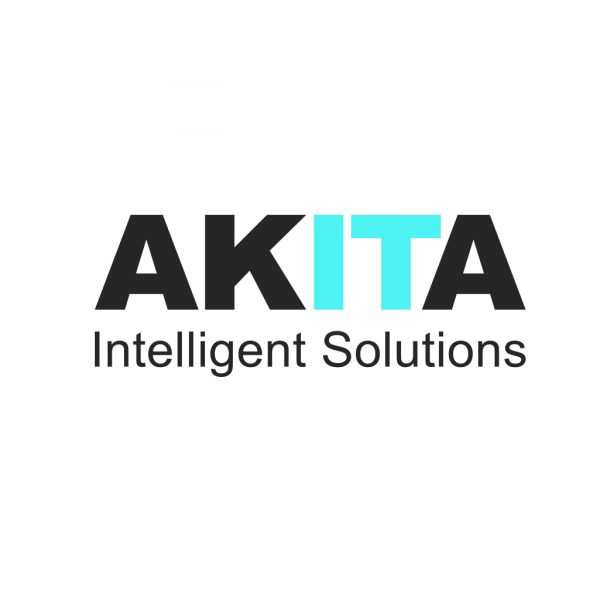London’s manufacturing sector is undergoing a period of rapid transformation.
As automation, digital supply chains, and customer expectations continue to reshape the landscape, manufacturers are under mounting pressure to become more agile, data-driven, and cost-efficient.
For many, enterprise resource planning (ERP) systems have become the foundation for achieving this change. Designed to unify financial, operational, and production processes, ERP platforms provide the visibility, control, and intelligence required to thrive in a competitive global marketplace.
In a city known for innovation, manufacturing ERP in London is more than just an operational upgrade — it’s a strategic imperative. Companies that effectively harness ERP technology are improving productivity, strengthening supply chains, and futureproofing their operations for Industry 4.0.
Why London Manufacturers Are Investing In ERP Systems
Manufacturers in and around London face a unique set of challenges and opportunities. The region is home to a diverse industrial base — from advanced engineering and precision fabrication to food production and electronics assembly. Each sector has its own complex workflows, yet all share a common requirement: the need for seamless visibility and control across every aspect of operations.
ERP systems address these needs by centralising data and automating routine processes. Whether it’s tracking raw materials, managing customer orders, or forecasting financial performance, ERP ensures all teams are working from a single, accurate dataset.
For many manufacturers, investment in ERP is also driven by:
- Demand for real-time decision-making: Executives require immediate insight into costs, output, and customer trends to remain competitive.
- Compliance and quality assurance: Meeting industry standards and maintaining audit trails are simplified through ERP automation.
- Scalability: As manufacturing firms expand, cloud ERP solutions allow them to scale without infrastructure constraints.
- Workforce efficiency: Automation reduces manual data entry and administrative workload, freeing teams to focus on value creation.
In short, ERP adoption gives London manufacturers the capability to streamline operations while building resilience against market volatility.
Top Challenges Of Implementing Manufacturing ERP In London
While the benefits of ERP are widely recognised, implementation can be daunting — particularly in a city where many manufacturers operate legacy systems or hybrid IT environments. Common challenges include:
Integration with existing technology
Many London-based manufacturers rely on a patchwork of systems built over years. Integrating ERP with production software, warehouse management tools, or third-party logistics systems requires careful planning and technical expertise.
Managing change resistance
ERP projects often alter day-to-day workflows. Employees accustomed to established processes may initially resist change, particularly if the benefits are not communicated effectively.
Ensuring data accuracy
Migrating historical data from multiple sources can lead to inconsistencies. A successful implementation depends on robust data cleansing and governance prior to go-live.
Controlling project scope and cost
Without disciplined project management, ERP rollouts can overrun budgets or timelines. A phased approach — prioritising critical business areas first — typically yields stronger results.
Training and adoption
The best ERP system delivers little value without user buy-in. Ongoing training and support are crucial to achieving a strong return on investment.
For London manufacturers, working with an experienced ERP partner can significantly reduce these risks. A knowledgeable consultant will guide organisations through planning, deployment, and user adoption while ensuring minimal operational disruption.
The Benefits Of ERP For London-Based Manufacturers
ERP implementation delivers far more than process automation — it creates a foundation for intelligent manufacturing. Key benefits include:
- Centralised data visibility
ERP systems consolidate data from finance, production, and supply chain into one unified view. Decision-makers gain real-time visibility of inventory levels, production capacity, and order progress, allowing for informed, proactive management.
- Enhanced productivity and efficiency
By automating repetitive tasks such as stock updates, order tracking, and quality reporting, ERP frees staff to focus on innovation and customer engagement.
- Better financial control
Integrated finance modules provide instant access to profit margins, project costs, and cash flow forecasts, improving strategic planning.
- Improved compliance
ERP platforms maintain detailed audit trails, ensuring manufacturers meet industry-specific regulations such as ISO standards or health and safety directives.
- Smarter supply chain management
Real-time insight enables manufacturers to anticipate shortages, manage supplier relationships, and optimise logistics.
- Sustainable operations
With visibility across energy use and waste metrics, ERP supports sustainability targets — a growing priority in London’s industrial strategy.
These benefits make ERP systems indispensable for manufacturers seeking to balance operational efficiency with long-term growth.
Choosing the Right Manufacturing ERP Partner In London
Selecting the right ERP partner can determine the success or failure of an implementation. Manufacturers in London should consider several critical factors when evaluating providers:
Industry expertise
Manufacturing processes are distinct from other sectors. A partner experienced in production, inventory, and engineering workflows can tailor ERP configurations that reflect industry realities.
Local presence and support
A London-based ERP partner offers the advantage of localised understanding, fast response times, and face-to-face collaboration during key project stages.
Technology alignment
The chosen partner should be proficient in modern ERP platforms, particularly cloud-based systems like Microsoft Dynamics 365, which integrate seamlessly with business applications already in use.
Proven implementation methodology
Structured project management frameworks ensure deployment stays on time and within budget, reducing risk and disruption.
Ongoing service and optimisation
ERP implementation is not a one-off project. Continuous support, performance monitoring, and system optimisation are vital for long-term success.
London’s manufacturers benefit most when partnering with consultancies that combine deep technical capability with a strategic understanding of manufacturing operations.
Maximising The Benefits Of ERP For London Manufacturers
As London’s industrial landscape becomes more competitive, effective ERP systems deliver a tangible edge. The capacity to access real-time operational data enables manufacturers to react faster to customer demands, market fluctuations, and supply chain disruptions.
For instance, when a raw material shipment is delayed, ERP systems can automatically recalculate production schedules, alert procurement teams, and forecast new delivery dates. This level of responsiveness can be the difference between maintaining customer trust and losing business.
Moreover, ERP systems drive collaboration across departments. Finance teams, production managers, and sales staff share a common data environment, reducing silos and ensuring consistent information flows. For manufacturers dealing with multiple clients or product lines, this connectivity improves quality, accountability, and profitability.
ERP also empowers sustainability initiatives — increasingly important for London-based firms aligning with the city’s carbon-neutral objectives. Manufacturers can track waste, monitor energy consumption, and identify areas to reduce resource use, creating both environmental and financial benefits.

What Is The Future Of Manufacturing ERP In 2026?
The evolution of ERP is accelerating. By 2026, ERP solutions used by London manufacturers will be more intelligent, automated, and connected than ever before. Key trends include:
AI and predictive analytics
ERP systems will leverage artificial intelligence to forecast demand, detect production anomalies, and suggest efficiency improvements autonomously.
IoT and connected factories
Sensors across manufacturing equipment will feed live data into ERP systems, enabling predictive maintenance and real-time process adjustments.
Cloud-first deployment
Cloud ERP will dominate due to its scalability, lower infrastructure costs, and ease of integration with other business systems.
Increased personalisation
Manufacturers will configure ERP interfaces to reflect specific workflows, improving usability and adoption across departments.
Greater sustainability reporting
Environmental and social governance (ESG) metrics will become a standard ERP feature, helping London manufacturers meet sustainability reporting obligations.
As these innovations mature, ERP systems will evolve from transactional management tools into intelligent decision-making platforms — central to the future of digital manufacturing.
The Possibilities With Microsoft Dynamics 365 In London’s Manufacturing Sector
Among the leading ERP solutions for manufacturers, Microsoft Dynamics 365 stands out as a flexible and scalable platform designed to meet modern manufacturing requirements. Its modular design allows businesses to integrate finance, supply chain, production, and service operations into a single ecosystem.
For London manufacturers, Dynamics 365 offers:
- Real-time analytics through Power BI for data-driven insight
- Seamless integration with Microsoft 365 and Teams for collaboration
- Cloud scalability to support business growth and multi-site operations
- AI-driven forecasting to improve resource planning and customer delivery
- Comprehensive compliance features for UK manufacturing standards
Dynamics 365 enables manufacturers to adopt a phased approach — implementing the most critical modules first, then expanding functionality as the organisation evolves. This flexibility is particularly valuable in London’s dynamic industrial environment, where agility and cost control are paramount.
Partnering with Akita Intelligent Solutions ensures manufacturers receive strategic guidance, expert configuration, and ongoing optimisation. With experience across diverse manufacturing disciplines, Akita helps businesses unlock the full value of Dynamics 365 ERP — improving efficiency, reducing waste, and delivering measurable ROI.
As London continues to strengthen its position as a hub for advanced manufacturing, ERP systems like Dynamics 365 will be instrumental in driving digital transformation. Manufacturers that act now will be better equipped to compete, innovate, and succeed in the data-driven economy ahead.
Akita is a leading partner for Microsoft manufacturing ERP London businesses rely on to drive their growth. For more information, please get in touch:





